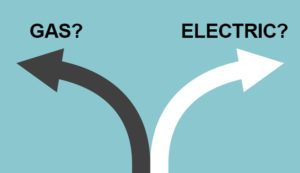 Chicago winters can be brutal, and on cold nights, it’s going to take more than your favorite blanket to keep you comfortable and warm – you need a furnace that runs efficiently to keep your household toasty.
Chicago winters can be brutal, and on cold nights, it’s going to take more than your favorite blanket to keep you comfortable and warm – you need a furnace that runs efficiently to keep your household toasty.
When you are building a new home or upgrading your current heating solution, determining the right option will make a difference in your heating bills and carbon footprint for decades to come.
Furnaces are rated by annual fuel-utilization efficiency (AFUE). This rating reflects the minimum percentage of fuel consumed in the process of heating your home; the remaining escapes through your flue. If your gas furnace was installed in the early 1970’s, you may have an AFUE ratings as low as 56%.
Furnaces are now more energy efficient than ever, with a gas furnace earning a AFUE rating as high as 99%. That means that replacing an older furnace will make a significant dent in your fuel bill.
When you’re researching a new heating solution, consider the following fuel options:
Gas Furnace
A gas furnace can be fueled by propane gas or natural gas. Newer furnaces are started with an electronic ignition, eliminating the need for fuel-sucking pilot lights.
Here in Chicagoland, and indeed most of northern Illinois, natural gas is readily available to all homes and businesses. Natural gas is the most cost-efficient, and it’s safer and cleaner to use. It burns cleaner than other fossil fuels, producing half the carbon dioxide that coal produces and about a third less than oil. It also emits significantly lower levels of toxic chemicals like nitrogen oxides and sulfur dioxide. Natural gas is a smart choice for your budget and the environment.
A furnace fueled with liquid propane gas can also be an efficient heating system if you want to install a furnace in a location that is not near a natural gas pipeline. Propane is stored in tanks, offering very flexible installation. When considering a propane gas furnace, check the pricing and availability of propane in your neighborhood.
Electric Furnace
Electric heaters can be multifunctional as some can be used as air conditioners in the summer. An electric furnace is safe and clean-burning, and in many cases, the cost of the unit and installation fees are lower in price than gas furnaces. However, electricity typically is much more expensive than natural gas, so your monthly fuel bills will be considerably higher. The U.S. Department of Energy (DOE) has stated that even when compared to electric baseboard heaters, wall heaters, and electric thermal storage, electric central furnaces are still more expensive to operate because of the amount of heat lost as the air moves through your home’s ducts. According to the DOE, electric furnaces are most often used in areas where electricity is the only option and where the climate is usually hot and dry.
For the Lincoln-Way neighborhoods and the greater Chicagoland area, a natural gas furnace is overwhelmingly the best choice. Your new high-efficiency furnace will not only pay for itself over time with lower energy bills, you’ll also be benefiting the environment and fighting climate change. Replacing an old gas heating system with an AFUE of 56% with a new system with a 90% AFUE will eliminate 1.5 tons of carbon dioxide emissions – that dramatically reduces your family’s carbon footprint!
The professionals at Maertin Heating and Cooling are here to help you make the process of choosing a new furnace easy and convenient. We’ll determine what size furnace your home requires, making sure the unit heats your home at optimum peak efficiency, without overworking the unit or wasting energy.
Questions about a new furnace – or your old furnace? Just reply to this email, click here or call 708-479-9350. We are always happy to help!



Add Comment